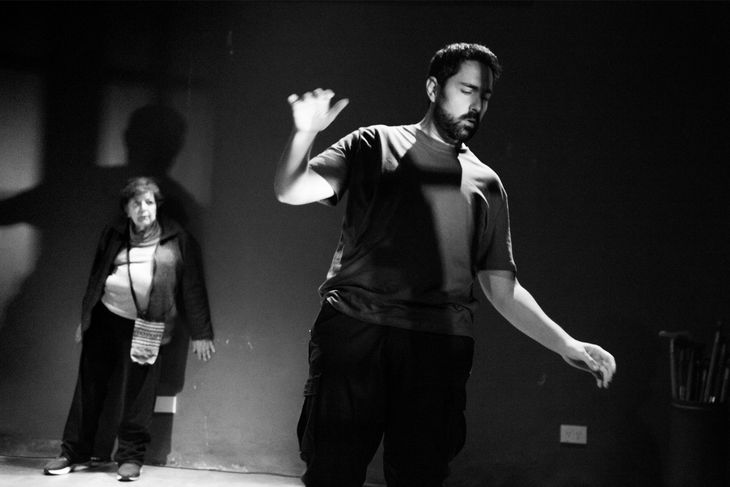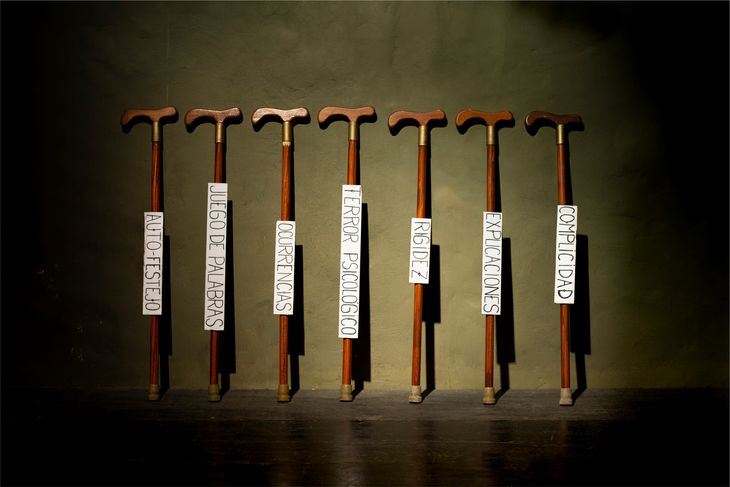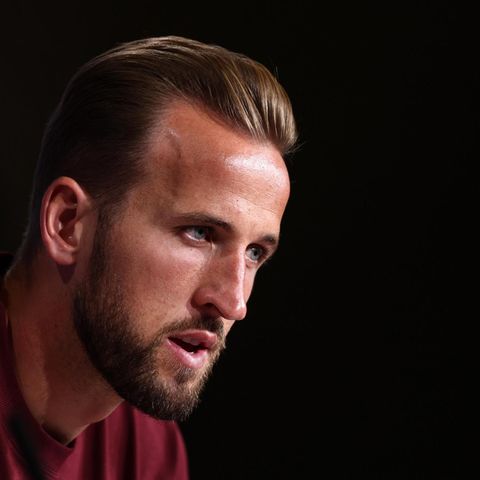“I wanted the public to attend, in the present time, to a series of evidence, experiments and transformations of a group of actors in full creative process,” says Federico León about “The work”, His new work that is the sixth premiere of the year of Paraíso Club, the community of partners that functions as a production house and makes possible the creation of works such as this offering the debut of a monthly show.
“Work” He stages a group of participants from a workshop in search of a form of radical experimentation. The leading triad embodied by Santiago Governori, Beatriz Rajland and his own Lion They apply a series of rules, agreements, commandments and strict protocols.
Lion, Great creator “The Times”, “Field Cachetazo” either “One thousand five hundred meters above the Jack level”, It synthesizes it in this way: “The work has to do with the workshops that I give and with the workshops I attended. The work shows a group through a learning, creation, search process. Everyone has to work something with the aim of modifying some behavior patterns.”
It offers functions in Zelaya, Zelaya 3134, on Friday, Saturday and Sunday at 20. We talked with Lion.
The Press Work 6 – Photo @Wo Portillo del Rayo.jpg
Image of the work that accounts for the discipline and objectives present in the workshops of dramaturgy and acting.
Journalist: You wrote a work that has elements of the discipline and objectives of the dramaturgy and performance workshops Why is this trigger?
Federico León: I had long wanted to do a work on the work I do in the workshops that I give and the workshops I attended when I studied. Staging that process that occurs in classes. I act in the work and somehow experiment, in my own flesh, which I usually propose in the workshops.
Q.: What do you see in that world of workshops as interesting material to take to stage?
FL: There is something open and very potential in everything that appears in the workshops. Sometimes in the essay process of a work they crystallize or close things that in the space of experimentation and pure process that occurs in the workshop are open and more alive. I wanted to do a work that reflects that state of process, search. That the public attends, in the present time, to a series of evidence, experiments and transformations of a group.
The work 3.1 – Photo @wo Portillo del Rayo.jpg

Q.: How are those who participate in the workshops or how would you describe that group work?
FL: Participants are very diverse. They come from different places: from theater, dance, cinema, visual arts, literature, music.
In the workshop space, the important thing is experience and see what appears-emerging in each of us during experimentation. The premise is to self-observe, follow the trail, not to dismiss anything; What I feel, I think, fantasy, dream, the ideas I have, how I react, how I take things: fears, projections, anxiety, all that talks about me and it is a beautiful material that constitutes me and that I have to share with others. It’s like a dream. I can’t judge it. It comes like this (I’m like that). What I can is try to unravel, amplify it, deepen it, associate-read things, work for and against certain trends. I can’t say “I would have liked to dream anything else.” That’s that. It is my material that constitutes me. In principle I have to honor him, take care of what I have. Outside of the workshop space (in life) logic, needs, emergencies. It is more difficult to share my vulnerability, my fears, my doubts.
Q.: Does your proposal have to bring the public closer to a proposal related to theater within the theater?
FL: It has more to do with working to oneself. Be increasingly conscious-report to my interest-burses-current investigations. The workshop proposes to observe how we work, what pieces we have, how we use them, what are our ways to look at things, why we have that look. Put my story on the table, my processes. I think all this goes beyond theater. It is a practice of self-observation and reflection on my own processes. They can be creative or life processes (I don’t see them very separate); How I am in my links, with my son, with my family, with my friends, with work. Try for a moment “elongar” some behavior patterns, modify ways of looking and looking.
Q.: How do you see the new generations of artists from both writing and from performance?
FL: There are a lot of works and actors and great actresses, despite this complicated era. Gathering with a group and crossing a process, with everything that a process brings (good-malo-misterious) seems to me that it is something to be sustained, especially at this time.
Q.: How is your art space supported in Zelaya? What is these independent spaces to sustain today?
FL: Zelaya is based with subsidies of the INT and Proteatro and also with the programming and with the workshops that I give and give other artists.
Q.: And in this line, how did it be released with the support of Paraíso Club and what importance do you give to communities of this type?
FL: That a large group of artists can articulate such an incredible and very stimulating project, especially at this time. Paradise creates a community that follows and shares closely the creative processes of the works. And on the other hand, it stimulates artists to share their work processes, something that is generally in the intimacy of the essays and only shared with the work team. I am happy to be part of this community.
Source: Ambito
I am an author and journalist who has worked in the entertainment industry for over a decade. I currently work as a news editor at a major news website, and my focus is on covering the latest trends in entertainment. I also write occasional pieces for other outlets, and have authored two books about the entertainment industry.




